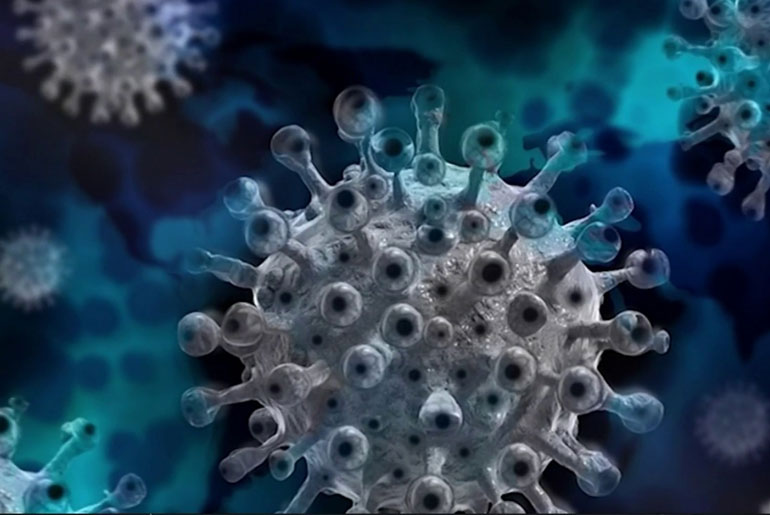The emergence of the JN.1 variant, linked to the Omicron virus, introduces a new dimension to the COVID-19 landscape. This variant carries novel mutations, suggesting a slightly increased transmission rate compared to its predecessors, implying higher infectivity. Despite this, the COVID-19 JN.1 variant does not exhibit severe symptoms, providing some relief. However, a cause for concern is its effective evasion of the immune system, contributing to heightened transmission.
The recent diagnosis of a 52-year-old woman in Delhi with JN.1 infection raises alarm bells as the surge in COVID-19 cases becomes a renewed concern for the central and state governments. The reported six deaths in the last 24 hours, with cases in Maharashtra, Delhi, Karnataka, Kerala, and West Bengal, underscores the need for vigilance. With the active caseload reaching 4,097, monitoring and responding to the JN.1 variant’s impact on public health remain imperative.
Indeed, recognizing COVID-19 JN.1 as an Omicron lineage reinforces the importance of informed and measured responses rather than panic. While the variant may exhibit increased transmission rates, it’s crucial to maintain a level-headed approach. The advised precautions, akin to those for COVID-19 JN.1, such as practicing good cough hygiene, regular handwashing, and taking breaks from work or school if symptoms arise, remain fundamental for prevention. These measures, grounded in established public health practices, contribute to limiting the spread of the virus and protecting individuals and communities. Adherence to these precautions, combined with ongoing vigilance and monitoring, can play a pivotal role in managing the impact of emerging variants and maintaining public health.
A list of recommendations for safeguarding health amid ongoing viral evolution. These recommendations cover a range of areas, including precautions for vulnerable groups, insights on virus evolution, lifestyle practices, hygiene, and the importance of vaccination. Here’s a summary in points:
Caution for Vulnerable Individuals:
- Individuals with underlying health conditions (e.g., age 65 and older, children, diabetes, bronchitis or asthma, heart patients, cancer patients) should exercise extra caution when going outside.
Prompt Medical Attention:
- Vulnerable groups experiencing flu-like symptoms should seek prompt medical attention due to their lower immunity.
JN.1 Variant:
- There’s no evidence suggesting the severity of the JN.1 variant is higher than other Omicron variants. It appears to be milder, with increased infectivity being the main concern.
Virus Evolution and Infectivity:
- Heightened infectivity is seen as a normal evolutionary process for viruses. They spread more easily but tend to cause less severe illness, ensuring their survival and transmission.
Decreasing Fatality Rate:
- The overall fatality or lethality rate seems to be decreasing with virus evolution, indicating a trend where viruses become less deadly over time.
Vigilance for High-Risk Groups:
- The current situation does not indicate severe outcomes, but individuals in high-risk groups should remain vigilant and take necessary precautions.
Promote a Robust Immune System:
- Emphasizes maintaining a wholesome lifestyle with a balanced diet, consistent exercise, and sufficient sleep.
- Seek guidance from healthcare professionals for immune-boosting strategies, especially for cancer patients in treatment.
- Maintain optimal blood sugar levels for individuals with diabetes.
Maintain a Hygienic Home Environment:
- Regularly clean and sanitize the home environment.
- Minimize visitors to lower the potential for exposure.
Thorough Preventive Measures:
- Follow preventive measures such as consistent handwashing, maintaining safe distances, avoiding close contact with the unwell, and wearing masks in public.
Vaccination and Regular Health Check-ups:
- Stress the essential role of vaccination in countering harmful pathogens, preventing severe illness, curbing disease transmission, and protecting individual and community well-being.
- Regular health check-ups complement vaccination, ensuring ongoing awareness and education about personal health.
These recommendations provide a comprehensive approach to health protection, considering both individual actions and community well-being in the context of evolving viral threats.
Disclaimer:
The information contained in this article is for educational and informational purposes only and is not intended as a health advice. We would ask you to consult a qualified professional or medical expert to gain additional knowledge before you choose to consume any product or perform any exercise.







